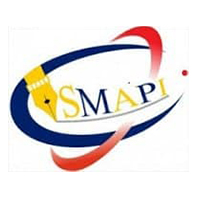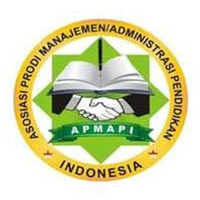The Influence of the Transformational Leadership of the Headmasters on the Professional Development of Preschool Teachers
DOI:
https://doi.org/10.21831/jump.v3i1.34850Keywords:
transformational leadership, teacher professional development, principal leadership, preschool teachersAbstract
The purpose of this research is to study the influence of the transformational leadership of the headmasters on the professional development of national preschool teachers in Perak state. The design of this study is quantitative descriptive using questionnaires as the instrument. The sample consists of 260 national preschool teachers from Perak, Malaysia. The research instrument is adapted from Leadership Practice Inventory (LPI) and Readiness, Planning, Training, Implementation and Maintenance (RPTIM) Model. The findings showed that the level of the transformational leadership of the headmasters and the level of preschool teachers' professional development are high. Pearson correlation analysis showed a significant positive relationship between these two variables. The regression analysis showed a high percentage of transformational leadership contributing to the preschool teachers' professional development. In conclusion, transformational leadership of the headmasters has evidently influenced the professional development of preschool teachers. It supports the views that transformational leadership is an ideal leadership style to be practiced by the school leaders.
References
Abdullah A.S, & Ismail S.N. (2017). The relationship of headmasters' shared leadership and teachers' motivation in primary schools. International Journal of Education, Psychology and Counselling. 2(6). pp.202-213.
Bandura, A. (1986). The explanatory and predictive scope of self-efficacy theory. Journal of social and clinical psychology, 4(3), 359-373.
Bass, B. M. (1985). Leadership and performance beyond expectations.
Bass, B. M., & Avolio, B. J. (Eds.). (1994). Improving organizational effectiveness through transformational leadership. Sage.
Bautista, A., Ng, S. C., Múñez, D., & Bull, R. (2016). Learning areas for holistic education: Kindergarten teachers' curriculum priorities, professional development needs, and beliefs. International Journal of Child Care and Education Policy, 10(1), 8.
Borko, H. (2004). Professional Development and teacher learning: Mapping the terrain. Educational Researcher, 33(8), 3-15.
Chang, D. F., Chen, S. N., & Chou, W. C. (2017). Investigating the major effect of principal's change leadership on school teachers' professional development. IAFOR Journal of Education, 5(3), 139-154.
Chee, J., Nor, M. M., Othman, A. J., & Rahman, M. N. A. (2018). Issues of content knowledge, pedagogy and technology among preschool teachers. JuKu: Jurnal Kurikulum & Pengajaran Asia Pasifik, 6(1), 7-21.
Clement, M., & Vandenberghe, R. (2001). How school leaders can promote teachers' professional development. An account from the field. School Leadership & Management, 21(1), 43-57
Cohen, J. (2001). Statistical power analysis for the behavioral sciences. Routledge.
Cresswell, J. W. (2012). Educational research planning, conducting and evaluating quantitative and qualitative research (4thed) – Boston, USA: Pearson Education Inc.
Cresswell, J. W. (2014). Research design: qualitative, quantitative, and mixed methods approaches-John W. Creswell.
Daud, Y., Yusoff, Z. J. M., Khalid, R., Don, Y., Omar-Fauzee, M. S., Raman, A., & Hussin, F. (2015). Distributive leadership among leaders in effective schools. Journal of Teaching and Education, 4(03), 423-433.
Day, C., & Harris, A. (2002). Teacher leadership, reflective practice, and school improvement. In Second International Handbook of Educational Leadership and Administration (pp. 957-977). Springer: Dordrecht.
Din, B., & Vinitwatanakhun, A. (2019). A comparative study of teachers' perceptions towards professional development according to their demographics at No. 1, Basic Education High School, Bhamaw, Kachin State, Myanmar. Basic Education High School, Bhamaw, Kachin State, Myanmar (March 13, 2019).
Don, Y., Raman, A., Hussin, F., & Kasim, K. (2016). The role of teacher leadership and extracurricular activities in the construction of the soft skills of secondary school students in Malaysia. International Journal of Academic Research and Development, 1(3), 89-95.
Earley, P., & Bubb, S. (2004). Leading and managing continuing professional development: developing people, developing schools. Sage.
Ghani, M. F. A., & Adnan, A. K. (2015). Malaysian teacher professionalism development model analysis study in high performing school and low performing schools. JuPiDi: Jurnal Kepimpinan Pendidikan, 2(2), 1-16.
Ghani, M. F. A., Adnan, A. K., Hussin, Z., Radzi, N. M., Ahmad, A. M., & Elham, F. (2017). Professional development program for high -performing school teachers. JuPiDi: Jurnal Kepimpinan Pendidikan, 3(3), 76-103.
Haider, S., Nisar, Q. A. L. I., Gill, S. S., & Ali, Z. (2017). Ensuring citizenship culture: A longitudinal study of transformational leadership. Journal of Business and Social Development 5(2), 25–35. Penerbit Universiti Malaysia Terengganu.
Haj, S. J., & Jubran, A. M. (2016). The extent of principals' application of the transformational leadership and its relationship to the level of job satisfaction among teachers of Galilee Region. Journal of Education and Practice, 7(11), 114-119 Retrieved from: https://files.eric.ed.gov/fulltext/EJ1099552.pdf
Ibrahim, M. Y., & Amin, A. (2017).Principal teaching leadership model and teacher teaching competencies. JuKu: Jurnal Kurikulum & Pengajaran Asia Pasifik, 2(1), 11-25.
Ismail, S. N. B., & Don, Y. B. (2017). Comprehensive quality management practices (TQM) and the relationship to principal leadership style. JuPiDi: Jurnal Kepimpinan Pendidikan, 2(1), 1-13.
Kouzes, J. M., & Posner, B. Z. (2013). Lpi®: Leadership Practices Inventory®.
Kouzes, J. M., & Posner, B. Z. (2017). The leadership challenge workbook revised. John Wiley & Sons.
Krejcie, R. V., & Morgan, D. W. (1970). Determining Sample size for research activities. Educational and psychological measurement, 30(3), 607-610.
Lee, Y. H., Woo, B., & Kim, Y. (2018). Transformational leadership and organizational citizenship behavior: Mediating role of affective commitment. International Journal of Sports Science and Coaching, 13(3), 373–382
Leithwood, K., & Jantzi, D. (1990). Transformational leadership: How principals can help reform school cultures. School Effectiveness and School Improvement, 1(4), 249-280.
Man, J., Don, Y., & Ismail, S. N. (2017). transformational; leadership and quality of generation "˜Y" teachers. JuPiDi: Jurnal Kepimpinan Pendidikan, 3(1), 29-42.
Masnan, A. H. (2014). The pedagogical practice of beginner preschool teachers (Doctoral dissertation, Universiti Sains Malaysia).
Maulod, S. A., Piaw, C. Y., Ahmad, H., Wei, L. M., & Alias, S. (2017). Principal emotional intelligence and its relationship with secondary self-efficacy of secondary of school teachers. JuPiDi: Jurnal Kepimpinan Pendidikan, 3(3), 54-75.
Mayan, M. P., & Mansor, M. (2016). Transformational leadership of headmasters towards the attitude and skill of secondary school discipline teachers in Gombak. International Conference on Accounting, Management and Economics (ICAME2016). Retrieved from: https://www.researchgate.net/publication/315829638
Musa, K., Yusof, H., Yunus, J. & Hamid, S. A. (2014). Principal transformational leadership: A comparison between excellent public and private secondary schools. Management Research Journal, 3, 120-139.
Neuman, S. B., & Kamil, M. L. (Eds.). (2010). Preparing teachers for the early childhood classroom: Proven models and key principles. Baltimore, MD: Paul H. Brookes.
Northouse, P. G. (2016). Leadership: Theory and practice. Sage publications.
O'Sullivan, H., & West-Burnham, J. (Eds.). (2011). Leading and managing schools. SAGE.
Opfer, V. D., & Pedder, D. (2011). Conceptualizing teacher professional learning. Review of Educational Research, 81(3), 376-407.
Pallant, J. (2011). Survival Manual. A step by step guide to data analysis using SPSS (4th ed.) Crows Nest, New South Wales, Australia: Allen & Unwin
Senol, H., & Dagli, G. (2017). Increasing service quality in education: views of principals and teachers. Eurasia Journal of Mathematics, Science and Technology Education, 13(8), 4857-4871
Stevenson, M., Hedberg, J. G., Sullivan, K. O., Howe, C., (2016). Professional development in education leading learning: The role of school leaders in supporting continuous professional development. Professional Development in Education
Taylor, T. Z., Psotka, J., & Legree, P. (2015). Relationships among applications of tacit knowledge and transformational/transactional leader styles: An exploratory comparison of the MLQ and TKML. Leadership & Organization Development Journal, 36(2), 120-136.
Tschannen-Moran, M., & Gareis, C. R. (2015). Faculty trust in the principal: An essential ingredient in high-performing schools. Journal of Educational Administration, 53(1), 66-92.
Uerz, D., Volman, M., & Kral, M. (2018). Teacher educators' competences in fostering student teachers' proficiency in teaching and learning with technology: An overview of relevant research literature. Teaching and Teacher Education, 70, 12-23.
Vygotsky, L. (1978). Mind in society: the development of higher psychological processes. Cambridge: Harvard University Press.
Yan-Li, S., & Hassan, D. (2018). Leadership behaviour on job satisfaction in malaysian national secondary schools: motivation and hygiene satisfaction. MOJEM: Malaysian Online Journal of Educational Management, 6(3), 48-67.
Yin, T. H. (2018). Tahap kepuasan ibu bapa terhadap kualiti pendidikan prasekolah di daerah Maran, Pahang. Jurnal Pendidikan Awal Kanak-kanak Kebangsaan, 7, 83-100.
Zaslow, M., Tout, K., Halle, T., Vick, J., & Lavelle, B. (2010). Towards the identification of features of effective professional development for early childhood educators: a review of the literature. Report prepared for the US Department of Education.
Zepeda, S. J. (2013). Professional development: What works. Routledge.
Downloads
Published
How to Cite
Issue
Section
License
Authors who publish with this journal agree to the following terms:
- The copyright of the accepted for publication articles shall be assigned to Jurnal Manajemen Pendidikan (JuMP) as the publisher of the journal. The intended copyright includes the rights to publish articles in various forms (including reprints).
- Jurnal Manajemen Pendidikan (JuMP) maintain the publishing rights of the published articles.
- Authors are permitted to republish or disseminate published articles by sharing the link/DOI of the article at Jurnal Manajemen Pendidikan (JuMP). Authors are allowed to use their articles for any legal purposes deemed necessary without written permission from Jurnal Manajemen Pendidikan (JuMP) with an acknowledgment of initial publication to this journal.











